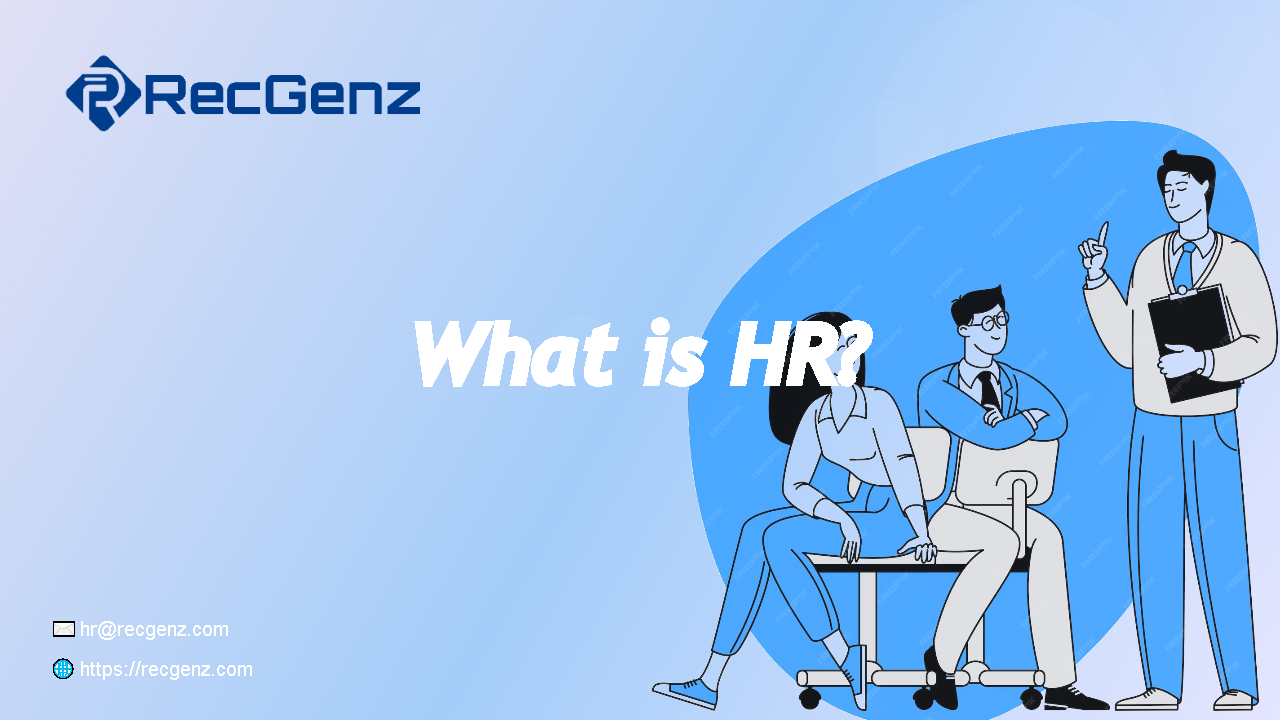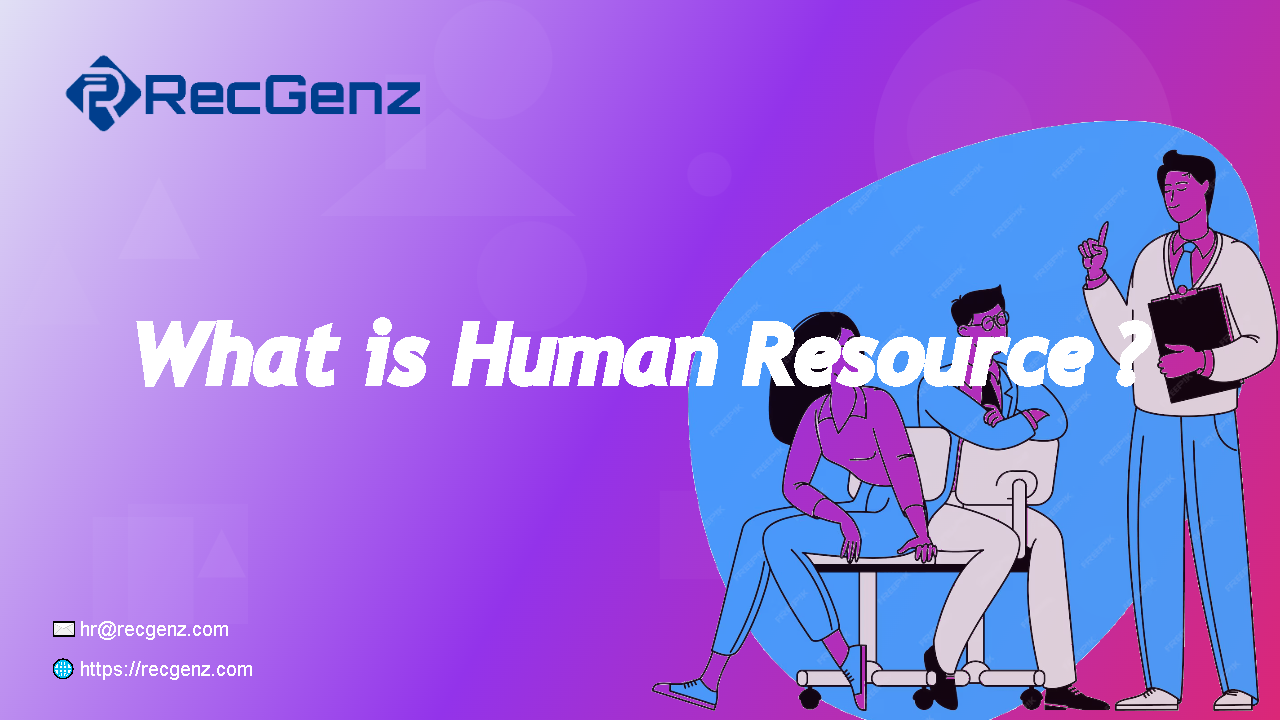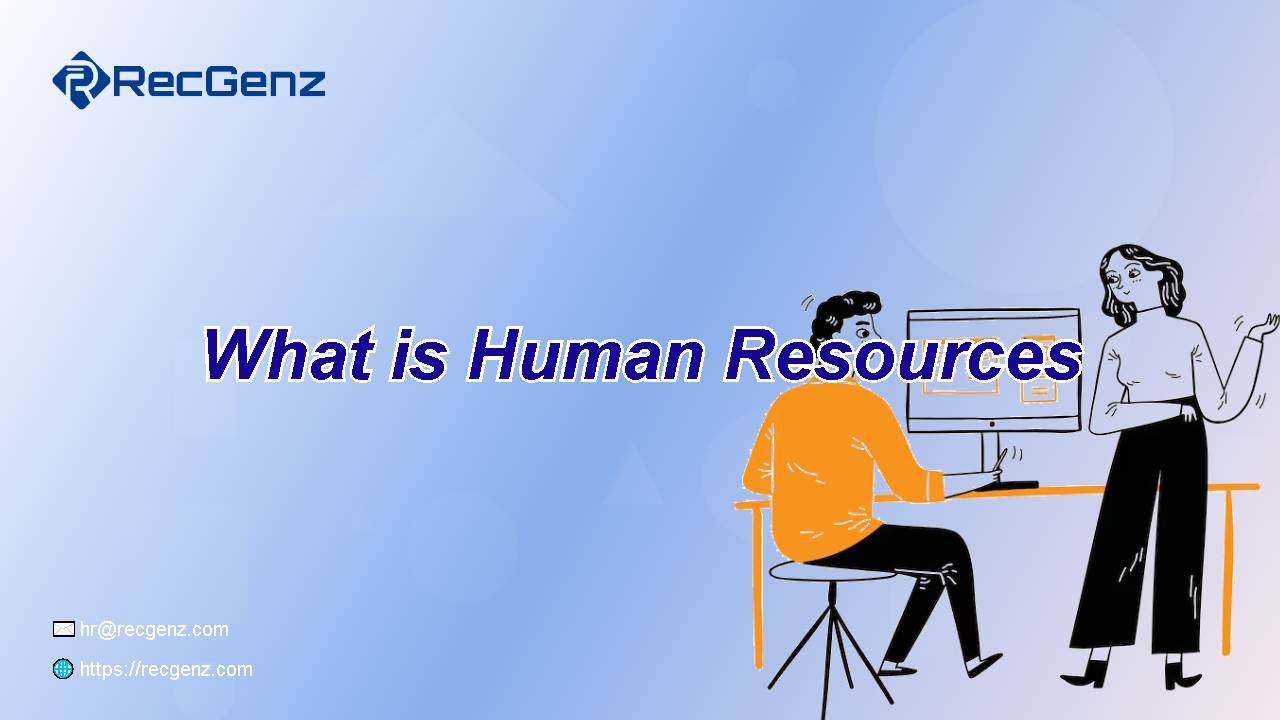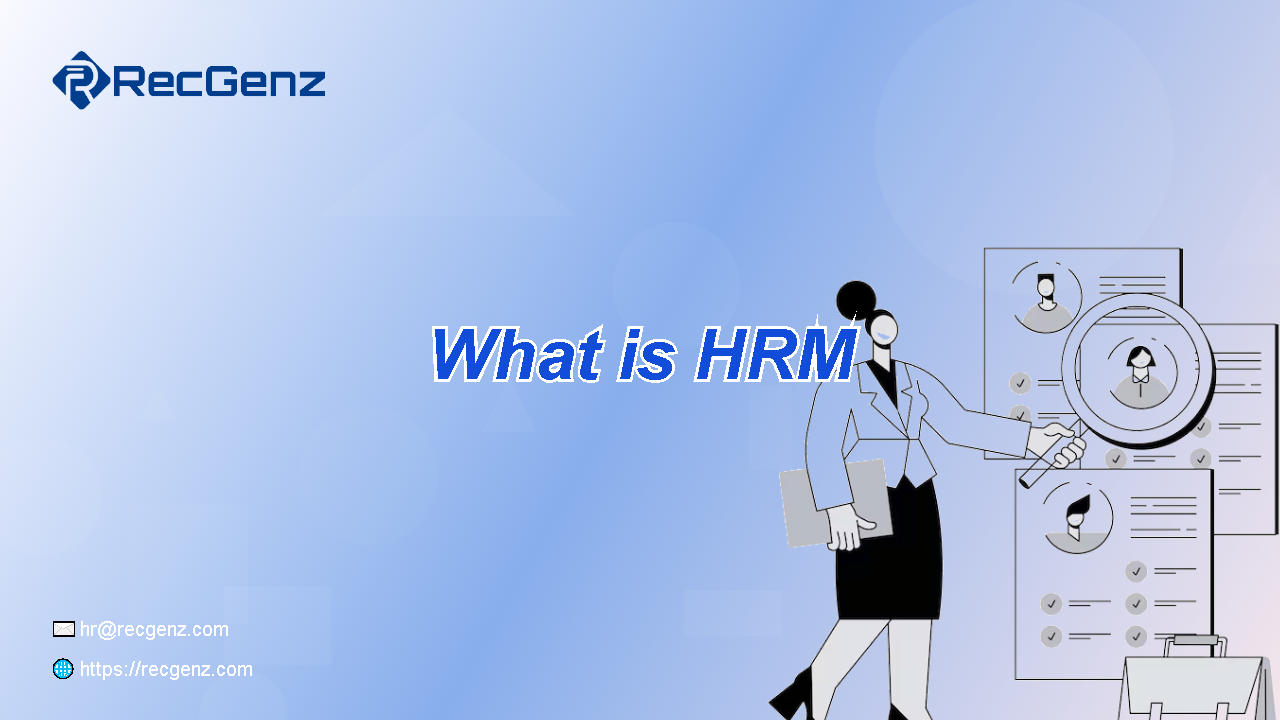What is HR?
An introduction to Human Resources and its importance in managing people, culture, and organizational growth.

Introduction to Human Resources
Human Resources (HR) is the department within an organization responsible for managing all aspects related to employees. This includes recruitment, training, compensation, benefits, performance management, and employee relations. The primary goal of HR is to maximize employee performance in service of an employer's strategic objectives.
In today's dynamic business environment, HR has evolved from an administrative function to a strategic partner that contributes significantly to organizational success. Modern HR professionals are now involved in shaping company culture, driving engagement, and developing talent strategies that align with business goals.
Key Functions of HR
1. Talent Acquisition and Recruitment
HR manages the entire recruitment process, from identifying staffing needs and creating job descriptions to sourcing candidates, conducting interviews, and making hiring decisions. Effective talent acquisition ensures organizations attract and retain the right people with the necessary skills and cultural fit.
2. Training and Development
HR identifies skill gaps and creates development programs to enhance employee capabilities. This includes onboarding new hires, providing ongoing training, leadership development, and creating career pathing opportunities that help employees grow within the organization.
3. Compensation and Benefits
HR develops competitive compensation structures and benefits packages that attract top talent while ensuring fairness and compliance with regulations. This includes salary administration, bonus programs, health insurance, retirement plans, and other perks that contribute to employee satisfaction.
4. Performance Management
HR establishes systems for setting performance expectations, providing regular feedback, conducting evaluations, and recognizing achievements. Effective performance management aligns individual goals with organizational objectives and drives continuous improvement.
5. Employee Relations
HR serves as a mediator between employees and management, addressing concerns, resolving conflicts, and maintaining a positive work environment. This function helps foster open communication and ensures fair treatment of all employees.
The Strategic Importance of HR
In today's knowledge economy, people are often a company's most valuable asset and source of competitive advantage. Strategic HR aligns people strategies with business objectives, ensuring that human capital investments directly contribute to organizational success.
HR's Evolution to Strategic Partner
Modern HR has transformed from primarily administrative tasks to becoming a strategic business partner. Today's HR leaders:
- Contribute to organizational strategy development
- Use data analytics to inform people decisions
- Drive cultural transformation and change management
- Develop talent pipelines for future leadership
- Enhance employee experience to improve retention and productivity



